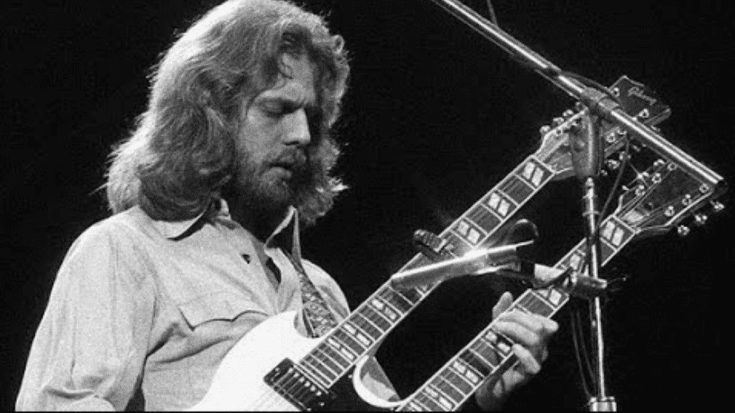5 Rock Bands with Notorious Firing Incidents

via The Real Music Observer / YouTube
Bands often face internal conflicts, creative differences, and personal struggles. These tensions can become so intense that some members are fired, leading to dramatic changes in the band’s lineup. Here are five rock bands that experienced some of the most notorious firing incidents in history.
Ozzy Osbourne (Black Sabbath)
View this post on Instagram
Black Sabbath was known for its heavy drinking, wild partying, and constant drug use. Over more than a decade, these behaviors became a staple of their identity. By April 27, 1979, the band’s patience had run out, and they decided to fire their lead singer, Ozzy Osbourne. Osbourne himself recalls in his memoir, I Am Ozzy, how he was perpetually under the influence. During rehearsals in Los Angeles, Bill Ward was chosen, likely by the other band members, to deliver the bad news to an inebriated Osbourne.
Osbourne could hardly remember the words said to him, but the message was clear: Tony Iommi thought his behavior had become intolerable for the band. They replaced him with Ronnie James Dio, while Ozzy embarked on a very successful solo career. The original Black Sabbath wouldn’t reunite until nearly two decades later in 1997.
Lindsey Buckingham (Fleetwood Mac)
View this post on Instagram
Fleetwood Mac has always had a history filled with personal dramas, romantic entanglements, and substance abuse. This ongoing turmoil strangely became a part of their allure. However, fans were nonetheless shocked when Lindsey Buckingham was dismissed in 2018, more than 40 years after he joined the band. The final straw reportedly involved Stevie Nicks, Buckingham’s former lover. She delivered an ultimatum: either Buckingham leaves, or she does.
Her demands led to his sudden removal from the band. Despite the setback, Buckingham expressed interest in rejoining Fleetwood Mac, but Christine McVie’s death in 2022 likely ended any remaining chances for a reunion.
Dennis DeYoung (Styx)
View this post on Instagram
As the ’70s ended, Styx was shifting from a prog-rock behemoth to a pop sensation. However, this transition was fraught with tension, particularly during the recording of their 1979 album Cornerstone. Dennis DeYoung was initially fired due to creative conflicts but was brought back when the band couldn’t find a suitable replacement. Cornerstone turned out to be a huge success, and the next album, Paradise Theater, did even better.
Despite this, the same creative issues resurfaced during the making of Kilroy Was Here in 1983, leading Styx to go on hiatus. DeYoung rejoined the band for reunions in 1990 and from 1995 to 1999. When health problems caused DeYoung to ask for a delay in touring, the rest of the band decided to continue without him. While DeYoung remains open to another reunion, the current members of Styx appear uninterested.
Don Felder (Eagles)
View this post on Instagram
Don Felder enjoyed many successful years with the Eagles, contributing to numerous hit albums and chart-topping singles. However, this harmony came to a dramatic end in 2001 when he was fired. The conflict began when Felder questioned the decisions of band leaders Glenn Frey and Don Henley, particularly regarding profit distribution.
What followed was a string of insults, lawsuits, and countersuits. Felder wasn’t quiet about his perspective, accusing Henley and Frey of greed. In his lawsuit, he mentioned their insatiable desire for more profits with every new project, marking a bitter end to his tenure with the Eagles.
Pete Best (The Beatles)
View this post on Instagram
The Beatles underwent one of the most famous firings in rock history when they replaced their original drummer, Pete Best. In the band’s early years, Best was with them as they played clubs across England and Germany. Despite several demos and audition tapes, nothing seemed to click for the group. Studio staff often criticized Best’s contributions during recordings.
There were also rumors that his bandmates felt envious of his good looks. By 1962, they decided to part ways with him, replacing him with Ringo Starr. This move completed the lineup of what would become one of the most iconic bands in music history, forever changing the trajectory of rock.













